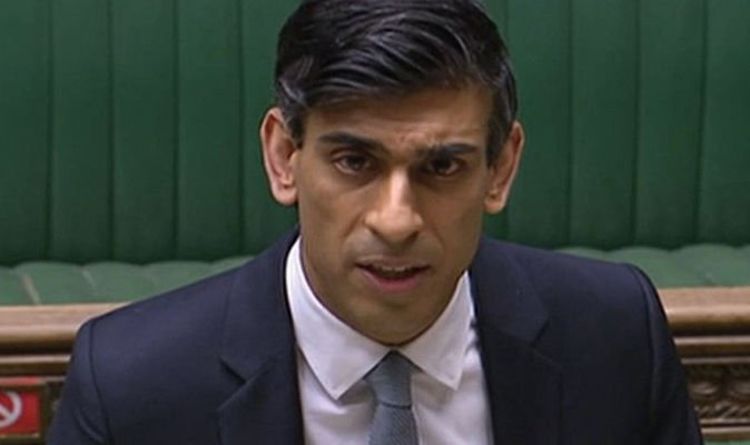Boris Johnson has ‘deal’ with Sunak over spending says insider
We use your sign-up to provide content in ways you’ve consented to and to improve our understanding of you. This may include adverts from us and 3rd parties based on our understanding. You can unsubscribe at any time. More info
The Chancellor is grappling with how to find more funding for Government projects amid record levels of UK debt. Borrowing soared as the Treasury looked to help keep the economy afloat during the coronavirus crisis.
According to the ONS, at the end of the last financial year total debt stood at £2.131trillion.
With Mr Sunak looking to bring down the debt level while also funding policies to help spread opportunity across the country, he is now thought to be looking at pension funds.
Policy advisers are working on proposals that would dilute the 0.75 percent cap on annual management fees.
Introduced five years ago, the cap protects workers auto-enrolled into workplace pensions.

But policy advisers are looking at whether to change the rules to encourage defined contribution (DC) pension funds to invest more widely in British assets, according to the Financial Times.
The higher fees would help to fund long term projects such as better infrastructure, renewable energy projects and innovative tech.
Any announcement on a final policy is expected to be announced at the Budget.
On October 27, the Chancellor will outline his spending plans in the House of Commons.
While the plans would lead to higher fees, Government insiders hope that investing in longer-term assets will lead to better returns for Britons.
The policy proposal comes after a working group of the Treasury, Bank of England and Financial Conduct Authority last month recommended a review into the charge cap.
They suggested a loosening of the rules could help stimulate more UK investment.
It comes after Britons have already faced a squeeze on their finances due to the pandemic
Last month the Government announced a new 1.25 percentage point hike on National Insurance contributions.
At the same time the Work and Pensions Secretary Thérèse Coffey said the state pension triple lock was being suspended for 2022.
The Conservatives committed to not increasing National Insurance and also sticking by the triple lock in their 2019 manifesto.
However, ministers said the coronavirus crisis had left them with no choice but to act.
More to follow…
Source: Read Full Article
